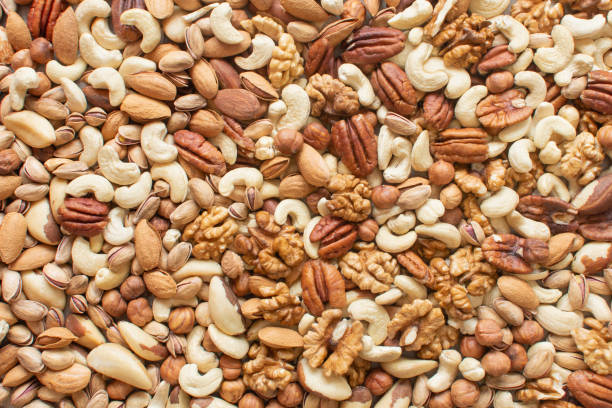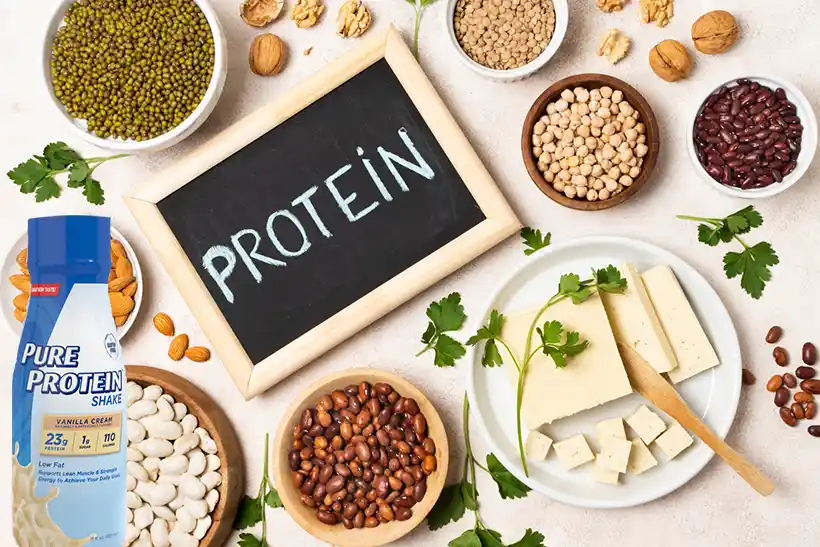Introduction
Welcome to WellHealthOrganic.com, your trusted resource for holistic health and wellness. In this comprehensive guide, we delve into the world of vegetarian protein sources, highlighting the diverse array of plant-powered options available to support your nutritional needs. Whether you’re following a vegetarian diet or simply looking to incorporate more plant-based protein into your meals, we’ve got you covered. Join us as we explore the nutritional benefits of vegetarian protein sources and discover delicious ways to boost your protein intake while embracing a plant-centric lifestyle.
Understanding the Importance of Protein in a Vegetarian Diet
Protein is an essential nutrient that plays a vital role in supporting overall health and well-being. It is necessary for muscle repair and growth, immune function, hormone production, and enzyme activity. While animal products are often considered primary sources of protein, a well-planned vegetarian diet can provide all the essential amino acids needed for optimal health.
Nutritional Benefits of Vegetarian Protein Sources:
-
- Rich in Nutrients: Vegetarian protein sources are often rich in essential vitamins, minerals, and antioxidants that support overall health and vitality.
- Heart-Healthy: Many vegetarian protein sources are low in saturated fat and cholesterol, making them heart-healthy choices that can help reduce the risk of cardiovascular disease.
- Eco-Friendly: Choosing plant-based protein sources can have a positive impact on the environment, as plant agriculture typically requires fewer resources and produces fewer greenhouse gas emissions compared to animal agriculture.
- Versatile and Delicious: Vegetarian protein sources come in a variety of forms, from beans and lentils to tofu and tempeh, offering endless possibilities for flavorful and satisfying meals.
Top Vegetarian Protein Sources:
-
- Legumes: Beans, lentils, and peas are excellent sources of vegetarian protein, offering a hearty dose of protein, fiber, and essential nutrients. They can be incorporated into soups, stews, salads, and casseroles for added protein and texture.
- Soy Products: Tofu, tempeh, and edamame are versatile soy-based protein sources that can be used in a variety of dishes, from stir-fries and curries to sandwiches and salads.
- Nuts and Seeds: Almonds, walnuts, peanuts, chia seeds, and hemp seeds are nutrient-dense sources of vegetarian protein that also provide healthy fats and essential minerals. They can be enjoyed on their own as snacks or added to yogurt, oatmeal, or smoothies for extra protein.
- Whole Grains: Quinoa, brown rice, bulgur, and oats are whole grains that contain a moderate amount of protein and are a great addition to vegetarian meals. They can be used as a base for grain bowls, pilafs, and salads.
- Dairy and Dairy Alternatives: Milk, yogurt, cheese, and plant-based milk alternatives like almond milk, soy milk, and oat milk are rich sources of protein and calcium. They can be enjoyed on their own or used in cooking and baking to add creaminess and flavor to dishes.
Incorporating Vegetarian Protein into Your Diet:
-
- Plan Balanced Meals: Aim to include a source of protein in each meal, such as beans, tofu, or lentils, along with a variety of colorful fruits and vegetables, whole grains, and healthy fats.
- Experiment with New Ingredients: Explore different vegetarian protein sources and experiment with new recipes and cooking techniques to keep meals exciting and flavorful.
- Combine Complementary Proteins: To ensure you’re getting all the essential amino acids, pair complementary protein sources together, such as beans and rice or tofu and quinoa.
- Snack Smart: Keep protein-rich snacks on hand, such as nuts, seeds, yogurt, or hummus with vegetables, to curb hunger between meals and maintain energy levels throughout the day.
Tips for Maximizing Protein Absorption:
-
- Pair with Vitamin C: Consuming plant-based protein sources with vitamin C-rich foods, such as citrus fruits, berries, or bell peppers, can enhance iron absorption and promote overall nutrient absorption.
Tofu, Tempeh, and Edamame: Soybean Superstars
Soybeans take center stage in the world of plant-based protein, offering a trifecta of nutritious options: tofu, tempeh, and edamame. Tofu, with its soft and silky texture, serves as a canvas for a myriad of flavors, making it a staple in countless vegetarian and vegan dishes. Tempeh, on the other hand, boasts a firmer texture and nutty flavor profile, making it ideal for grilling, stir-frying, or crumbling into chili and tacos. Meanwhile, edamame, young soybeans in their pods, serve as a delightful snack or a vibrant addition to salads and stir-fries. Rich in protein, iron, and calcium, these soybean superstars are essential components of a well-rounded vegetarian diet.
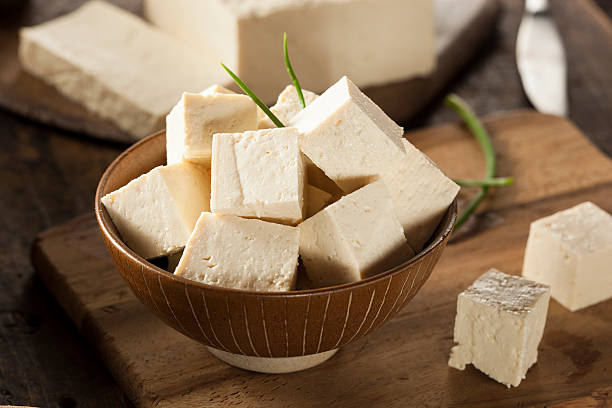
Lentils: The Versatile Legume
When it comes to versatility, lentils reign supreme in the realm of legumes. Whether you prefer red, green, or brown varieties, these tiny legumes pack a nutritional punch with each bite. With a robust flavor and hearty texture, lentils lend themselves well to soups, stews, salads, and curries, offering a substantial dose of protein along with fiber, folate, and other essential nutrients. Explore our collection of lentil-based recipes on WellHealthOrganic.com and discover creative ways to incorporate this powerhouse ingredient into your meal rotation.
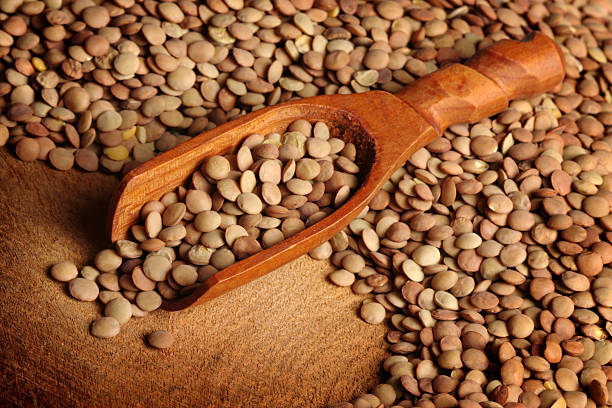
Beans: A Protein-Rich Pantry Staple
No vegetarian pantry is complete without an assortment of beans, and for good reason. Kidney beans, black beans, navy beans—each variety brings its own unique flavor and texture to the table, while offering a substantial source of plant-based protein. Whether you’re whipping up a batch of hearty chili, crafting veggie-packed salads, or molding flavorful bean burgers, beans serve as a versatile canvas for culinary creativity. Packed with protein, fiber, and an array of vitamins and minerals, beans are a must-have for anyone looking to nourish their body with wholesome, plant-based fare.
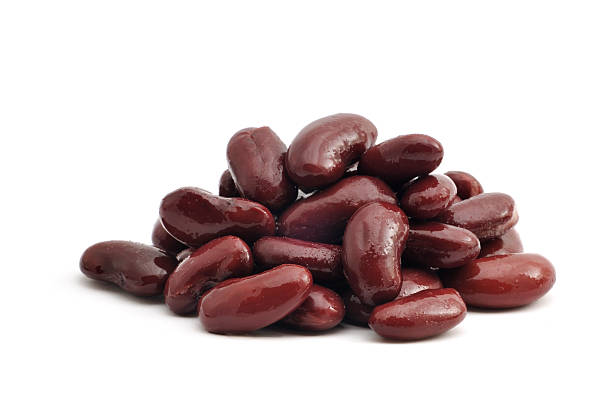
Chickpeas (Garbanzo Beans): The Mediterranean Marvel
Hailing from the Mediterranean region, chickpeas, also known as garbanzo beans, are a nutritional powerhouse beloved for their versatility and taste. Whether mashed into creamy hummus, crisped into golden falafel, or tossed into vibrant salads, chickpeas add a satisfying dose of protein, fiber, and flavor to any dish. Rich in folate, iron, and manganese, these legumes boast an impressive nutritional profile that supports overall health and well-being. Explore our collection of chickpea-centric recipes on WellHealthOrganic.com and elevate your culinary repertoire with the Mediterranean marvel that is chickpeas.
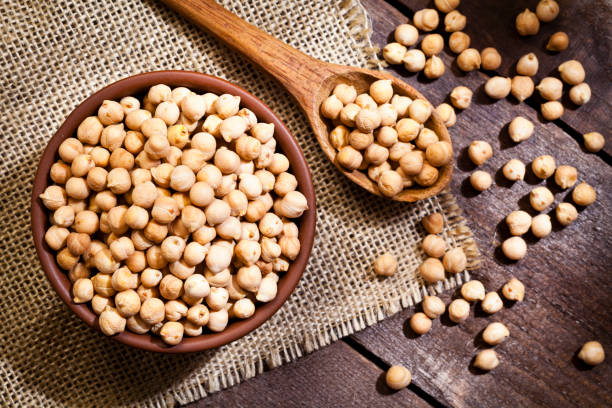
Quinoa: The Complete Protein
Quinoa, often hailed as a superfood, is a complete protein, meaning it contains all nine essential amino acids that the body cannot produce on its own. Native to the Andean region of South America, quinoa boasts a nutty flavor and delicate texture that pairs well with a variety of dishes. Whether served as a fluffy side dish, tossed into salads, or used as a base for hearty grain bowls, quinoa offers a nutrient-rich foundation for plant-based meals. Packed with protein, fiber, and essential nutrients like magnesium and iron, quinoa is a valuable addition to any vegetarian diet.

Nuts: Nature’s Nutrient-Dense Snack
In addition to being a convenient and satisfying snack, nuts are a nutrient-dense source of plant-based protein, healthy fats, and an array of vitamins and minerals. Almonds, peanuts, pistachios, cashews—each nut variety brings its own unique flavor profile and nutritional benefits to the table. Whether enjoyed on their own, sprinkled over salads, or blended into creamy nut butters, nuts are a versatile ingredient that adds texture, flavor, and nutritional value to a wide range of dishes. Explore our selection of nut-based recipes on WellHealthOrganic.com and harness the power of nuts to fuel your plant-based lifestyle.
